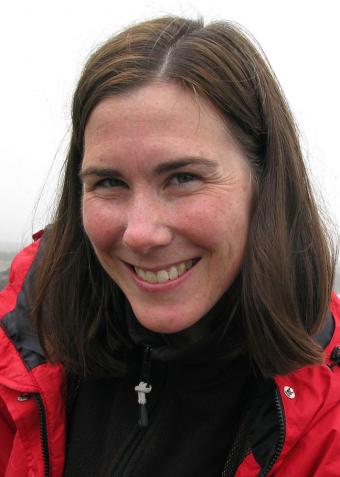PROVIDENCE, R.I. [Brown University] — Scientists including Brown University’s Heather Leslie sounded an alarm in the journal Nature Nov. 6 about problems with the conversation in the world of conservation.
Leslie co-signed a commentary led by Jane Lubchenco, former head of the National Oceanic and Atmospheric Administration, and Heather Tallis, lead scientist at the Nature Conservancy. They warn both that conservation science discourse, funding, and progress has become mired in “vitriolic personal battles” between competing philosophies and that “the dispute has become dominated by only a few voices, nearly all of them men’s.”
The recently resurfaced philosophical schism exists between those who argue that nature deserves protection for its own sake (its “intrinsic value”) and those who argue that nature must also be sustained for the good of humanity (its “instrumental” value), the authors said. The solution they advocate is one of greater inclusion not only of the competing points of view, but a greater diversity of voices.
Specifically the commentary’s 240 co-signatories call for encouraging a more “unified and diverse conservation ethic” by teaching students the field’s history of varied conservation approaches; featuring more voices of underrepresented scientists in a variety of fora; embracing a broader base of conservation actors, including corporations and faith-based organizations; and trying to bring media attention to a broader spectrum of conservation scientists and practitioners.
In a new blog post, Leslie reflected on the progress she sees at Brown, for instance within the University’s interdisciplinary Institute for the Study of Environment and Society, which integrates scholars from the social and natural sciences and the humanities.
Through the Voss Environmental Fellows Program, Leslie writes, undergraduates learn to navigate diverse perspectives on environmental science and action. In guiding students in independent research, she adds, she encourages them to understand the interests of those with whom they interact. While some will be scientists, whether in academia, industry or the nonprofit sector, many others will be resource users and managers. Learning to communicate effectively with environmental professionals working in these varied contexts is critical, Leslie writes.
“When we go into the field or discuss a new journal article, I urge students to step outside their own worldviews and really try to understand what makes those with whom they interact tick,” she writes.
Along with her fellow co-signers who are listed at diverseconservation.org, she acknowledges there is more to do to ensure productive discourse in the field: “We need to open the dialogue and the doing of conservation science to the diversity of genders, ethnicities, cultures, and worldviews who make up the world in whose name we are generating this science.”

